The Computer Science curriculum is based on the foundations of the National Curriculum. We aim to cover all aspects of the KS3 curriculum and offer the OCR GCSE in Computer Science in Year 10 and 11. The below timeline outlines the adventure that your students are on, from the moment they join to the moment they leave as remarkable Computational Thinkers
Year 7
Unit 1 – Digital Literacy

You will explore the basic foundations of digital literacy and get to grips with their new school network.
Read MoreUnit 2 – Under the Hood
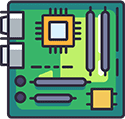
You will begin to learn about what exactly is inside of a computer and how the different parts work together to process data
Read MoreUnit 3 – Algorithms
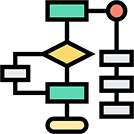
You will drive into the world of computational thinking. An algorithm is a plan, a set of step-by-step instructions to solve a problem. If you can tie shoelaces, make a cup of tea, get dressed or prepare a meal then you already know how to follow an algorithm.
Read MoreUnit 4 – Visual Programming

Discover the power of visual programming languages. Instead of writing code, you'll use visual elements and blocks to create programs. Learn to design intuitive user interfaces, create animations, and develop interactive applications by connecting blocks together. Unlock the potential of coding through a graphical approach.
Read MoreUnit 5 – P5.JS

Get hands-on with creative coding using P5.JS, a JavaScript library. You'll explore visual and interactive programming, creating animations, games, and interactive web experiences. P5.JS offers a simple syntax and powerful features, allowing you to bring your artistic and computational ideas to life in the browser.
Read MoreUnit 6 – E-Safety
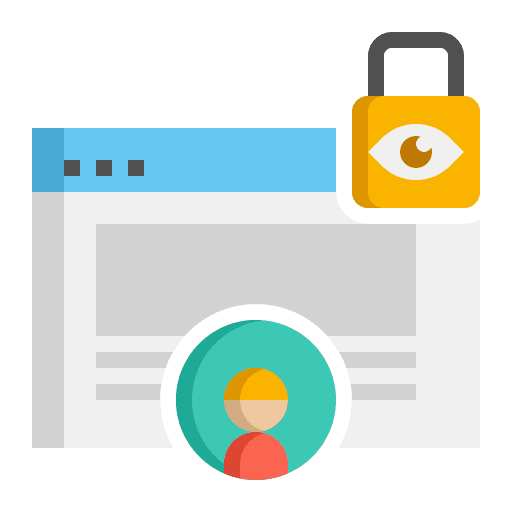
Explore the importance of online safety and responsible digital citizenship. Learn about potential online risks, such as cyberbullying, identity theft, and phishing. Understand how to protect personal information, navigate social media responsibly, and engage in safe online communication. Develop strategies to promote a secure and ethical online presence.
Read MoreYear 8
Unit 7 - Visual Programming Intermediate

Take your visual programming skills to the next level. Build upon the basics and delve into more advanced concepts and techniques. Explore topics like event-driven programming, object-oriented design, and advanced user interface development. Create visually appealing and interactive applications using tools like Scratch.
Read MoreUnit 8 - Python Programming

Dive into the versatile world of Python programming. Learn the fundamentals of Python syntax, data types, control structures, and functions. Explore object-oriented programming concepts and modular design principles. Develop skills in file handling, exception handling, and working with libraries and modules. Gain practical experience in solving problems and building applications using the Python programming language.
Read MoreUnit 8 - Computer Logic

Discover the foundations of computer logic and digital circuits. Explore Boolean algebra, logic gates, and truth tables. Learn how to design and analyse combinational and sequential circuits. Dive into topics such as binary arithmetic, memory units, and computer organization. Gain a deeper understanding of how computers process and manipulate information at the fundamental level of logic.
Read MoreUnit 10 - Graphics and Ethics

Examine the ethical considerations surrounding graphics and visual media. Explore the impact of digital manipulation, image rights, and copyright infringement. Discuss the ethical implications of using graphics in advertising, media, and entertainment. Analyse the role of graphic designers in promoting inclusive and ethical practices. Gain a deeper understanding of the ethical responsibilities in the creation and use of visual content.
Read MoreYear 9
Unit 11 - Python Intermediate

Take your Python programming skills to the next level. Explore more advanced topics such as data structures, loops and algorithms. Develop proficiency in handling exceptions, working with files, and interacting with databases. Enhance your problem-solving abilities through hands-on projects and coding challenges.
Read MoreUnit 12 - HTML and Web

Delve into the world of web development with HTML. Learn the fundamentals of HTML markup, including tags, attributes, and elements. Explore the structure and organization of web pages, creating layouts, adding multimedia content, and styling with CSS. Discover responsive design principles, accessibility considerations, and best practices for creating user-friendly websites. Gain hands-on experience in building and publishing web pages.
Read MoreUnit 13 - P5.JS Intermediate

Build upon your knowledge of P5.JS and further explore the creative possibilities of this JavaScript library. Dive deeper into advanced topics such as interactivity, animation, and responsive design. Learn to work with external data sources, create interactive visualizations, and integrate multimedia elements. Explore more complex coding concepts and techniques to enhance your ability to create engaging and interactive web experiences using P5.JS.
Read MoreUnit 14 - Cyber Security

Explore the field of cybersecurity and the measures to protect computer systems and networks from unauthorized access, attacks, and data breaches. Learn about different types of cyber threats, such as malware, phishing, and social engineering.
Read MoreUnit 15 – Animation

Step into the captivating realm of animation. Learn the principles of animation, including timing, spacing, and movement. Explore different animation techniques, such as traditional hand-drawn animation, stop motion, and computer-generated animation. Develop storytelling skills and create engaging animations that entertain and communicate effectively.
Read MoreYear 10
Unit 1 - Inside the Computer

Explore the inner workings of a computer system. Learn about the components that make up a computer, including the CPU, memory, storage, and peripherals. Understand how data is represented and processed within the computer. Dive into topics such as binary representation, Boolean logic, and the fetch-decode-execute cycle. Gain insight into the architecture and operation of computers at a fundamental level.
Read MoreUnit 2 - The workings of the CPU
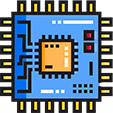
Dive into the intricate workings of the Central Processing Unit (CPU). Learn about the components and functions of the CPU, including the control unit, arithmetic logic unit (ALU), and registers. Explore the fetch-decode-execute cycle and understand how instructions are executed. Gain insights into concepts such as clock speed, cache memory, and pipelining. Develop an understanding of how the CPU interacts with other components of a computer system.
Read MoreUnit 3 - Binary Logic

Explore the fundamentals of binary logic and its applications in computing. Learn about Boolean algebra and logic gates, including AND, OR, and NOT gates. Understand how these gates are combined to create more complex circuits. Explore truth tables and logical operations. Dive into topics such as logic gate diagrams, Boolean expressions, and simplification techniques. Develop skills in designing and analysing digital circuits using binary logic.
Read MoreUnit 4 - Data Representation
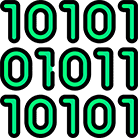
Gain an understanding of how data is represented and stored in computer systems. Explore different number systems, including binary, decimal, and hexadecimal. Learn about data formats such as ASCII and Unicode for representing characters. Dive into topics like binary arithmetic, two's complement representation, and fixed-point and floating-point numbers. Understand the concept of data compression and its impact on storage efficiency. Develop skills in converting and manipulating data representations in computer systems
Read MoreUnit 5 - Algorithms

Dive into the world of algorithms and computational thinking. Learn the fundamental concepts and techniques used to solve problems algorithmically. Understand algorithm design strategies such as iteration, recursion, and divide-and-conquer. Explore algorithm efficiency and analysis, including Big O notation. Learn about searching and sorting algorithms, data structures, and algorithmic problem-solving techniques. Develop skills in designing, implementing, and analysing algorithms to solve real-world problems.
Read MoreUnit 6 - Computational Thinking

Develop essential computational thinking skills. Understand the core principles and strategies used to tackle complex problems. Explore abstraction, decomposition, pattern recognition, and algorithmic thinking. Learn to break down problems into smaller, manageable parts and develop step-by-step solutions. Apply computational thinking techniques to a variety of contexts, such as data analysis, simulations, and automation. Develop critical thinking and problem-solving abilities that are applicable across various disciplines
Read MoreYear 11
Unit 7 - Defensive Design

Explore the principles of defensive design in software development. Understand the importance of designing software systems that are robust, secure, and resistant to errors and vulnerabilities. Learn techniques for handling exceptions, input validation, and error handling. Dive into topics such as defensive programming, code review, and testing strategies. Develop skills in writing resilient and secure code that can withstand unexpected situations and potential threats.
Read MoreUnit 8 - System Software

Gain insight into the role and functions of system software in computer systems. Explore operating systems, their components, and their interaction with hardware and applications. Learn about memory management, process scheduling, file systems, and device drivers. Dive into topics such as system utilities, software updates, and system security. Understand the importance of system software in providing an efficient and reliable computing environment.
Read MoreUnit 9 - Networking
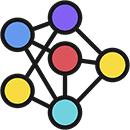
Explore the fundamentals of computer networking. Learn about network architectures, protocols, and technologies. Understand the layers of the TCP/IP models. Explore topics such as IP addressing, subnetting, routing, and switching. Dive into network security, including firewalls, VPNs, and intrusion detection systems. Gain hands-on experience in configuring and troubleshooting networks. Develop an understanding of network management and the importance of effective communication and collaboration in network environments.
Read MoreUnit 10 – Ethical and Moral Computing

Delve into the ethical and moral considerations related to computing and technology. Explore the impact of technology on society, privacy, and individual rights. Discuss topics such as intellectual property, copyright infringement, and digital rights management. Understand ethical issues related to data collection, surveillance, and artificial intelligence. Explore professional codes of ethics and the responsibilities of individuals working in the computing field. Develop critical thinking skills to navigate ethical dilemmas and make informed decisions in the realm of computing.
Read More
